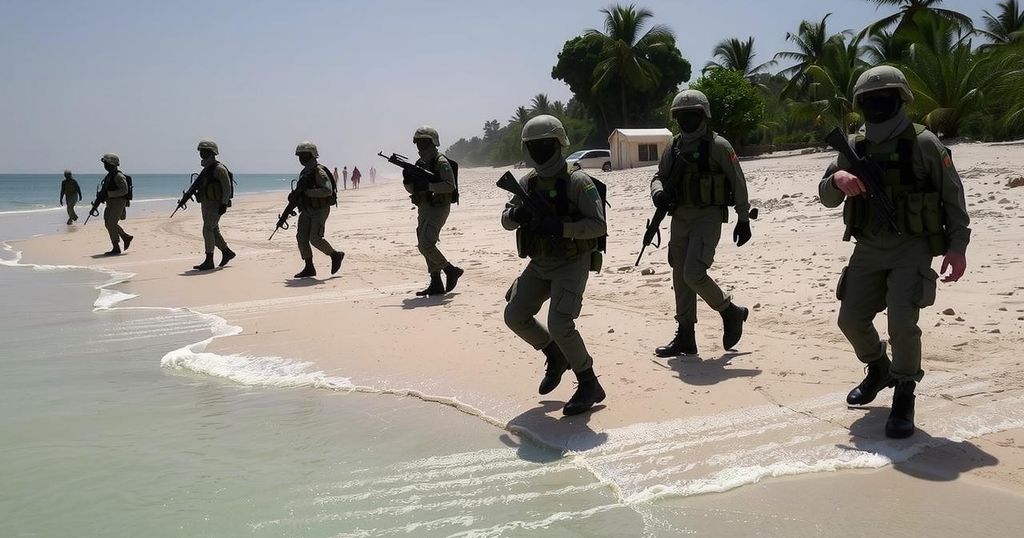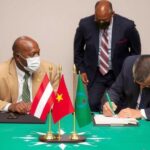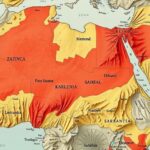Politics
AFRICA, ALA, ALASSANE OUATTARA, ASIA, BASSIROU DIOUMAYE FAYE, BURKINA FASO, CHAD, CHINA, COTE D ' IVOIRE, COUP, DJIBOUTI, EUROPE, EUROPE/ASIA, EXTREMIST GROUPS, FAYE, FRANCE, GABON, IVORY COAST, MALI, MILITARY, MOROCCO, NIGER, OUATTARA, PORT BOUET, REGIONAL COOPERATION, RUSSIA, SAHEL, SECURITY, SENEGAL, WEST AFRICA
Sophia Klein
Ivory Coast Announces Withdrawal of French Troops Amid Growing Sovereignty Sentiments
Ivory Coast has declared that French troops will withdraw from the country, a decision announced by President Alassane Ouattara as part of the modernization of Ivorian armed forces. This action aligns with a broader regional trend, as Senegal previously planned to close French military bases by 2025, reflecting a growing sentiment for sovereignty and reduced reliance on former colonial powers. The withdrawal signals a significant shift in West Africa’s military landscape.
Ivory Coast has officially announced the withdrawal of French troops, marking a significant reduction of the former colonial power’s military presence in the West African nation. During an end-of-year address, President Alassane Ouattara affirmed that this decision aligns with the ongoing modernization of the country’s military forces. He indicated that the French military infantry battalion based in Port Bouët would transition to Ivorian control.
The move reflects a broader trend in the region, as Senegal also announced the closure of French military bases by the end of 2025. Presently, Ivory Coast hosts the largest contingent of French forces, with approximately 600 personnel, in contrast to the 350 stationed in Senegal. President Ouattara remarked, “We have decided in a concerted manner to withdraw French forces from the Ivory Coast.”
This withdrawal signifies a shift in military dynamics after France’s military exit from Mali, Burkina Faso, and Niger, following coups and an escalation of anti-French sentiments. Additionally, Chad recently terminated its defense cooperation agreement with France. On the other hand, Senegalese President Bassirou Dioumaye Faye has mandated a reevaluation of military cooperation, proposing an end to foreign military presence by 2025, which aligns with his electoral commitment to reinforce national sovereignty.
France retains a modest military presence in Gabon, but military leaders in Niger, Mali, and Burkina Faso have increasingly turned towards Russia for assistance against jihadist threats. Following the reduction of French troops, political analysts note that France is negotiating its military engagements in Africa, seeking to revise its strategies amidst diminishing influence. Historically, Ivory Coast was recognized for its economic stability and harmony; however, political strife since 2002 has complicated its journey towards lasting peace. The nation remains a prominent cocoa exporter and boasts a relatively high standard of living in the region.
The announcement of the withdrawal of French troops from Ivory Coast is set against a backdrop of shifting political alliances and anti-colonial sentiment in West Africa. The countries of the Sahel have witnessed a wave of military coups and growing public disdain towards former colonizers, notably France. In response to these developments, several nations, including Senegal and Chad, have begun to reassess their military partnerships with France, seeking to assert greater control over their defense strategies. The recent decision reflects a change in military dynamics and the potential for greater autonomy in regional security affairs.
The withdrawal of French troops from Ivory Coast marks a pivotal moment in the nation’s military history and underscores the evolving relationships between African states and their former colonial powers. As West African nations increasingly seek to redefine their sovereignty and approach to national security, France faces significant challenges in maintaining its influence in the region. The shift towards a more independent defense posture may herald a new era for West Africa, promising both opportunities and complexities in regional stability.
Original Source: www.bbc.com








Post Comment